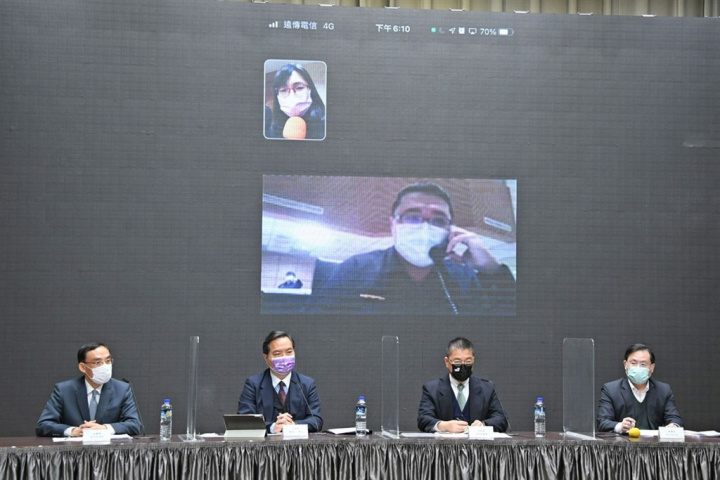
Taipei, Nov. 23 (CNA) Premier Su Tseng-chang (蘇貞昌) issued a directive Tuesday for police to provide prosecutors with evidence obtained in criminal investigations, so as to improve prosecution rates.
Su gave the directive at a Cabinet-level public safety meeting, following a recent string of public order and safety offenses, including a series of violent attacks against convenience store clerks in disputes over mask mandates and several fights with baseball bats.
Given that some innocent persons were killed and injured in the recent incidents, the relevant government agencies should do more to address the problem, Su said, according to Executive Yuan spokesperson Lo Ping-cheng (羅秉成), who spoke to reporters after the Cabinet meeting.
In the latest string of violent incidents, a customer at a convenience store in Taoyuan stabbed a clerk to death on Sunday after being asked to wear a mask. Under Taiwan's current COVID-19 protocols, face masks are mandatory in most public venues, including convenience stores.
That killing followed two attacks on convenience store clerks in September and October in Pingtung and Taichung, respectively.
Addressing the rise in such assault cases, Su directed the Ministry of the Interior and the Ministry of Economic Affairs to examine the possibility of establishing a direct reporting system between convenience stores and police units to expedite police response, according to Lo.
Su also said police should strive to collect evidence that could lead to higher prosecution rates, when the information is passed on to prosecutors, Lo told reporters.
He further asked the National Police Agency to update convenience store clerks about the use of its crime-reporting mobile app and to increase police patrols near convenience stores.
In addition to the attacks at convenience stores, several fights with baseball bats were reported recently in Taichung, New Taipei, and Yunlin, while a man allegedly gunned down an individual in New Taipei's Xindian District on Monday and fled to China later in the day.
Su said most of the perpetrators of such violence are from high-risk families, which makes them easy recruits for gangs.
To tackle the problem at the root, the Ministry of Education should make a stronger effort to identify students who may be going down the wrong path and try to prevent them from joining gangs, Su said.